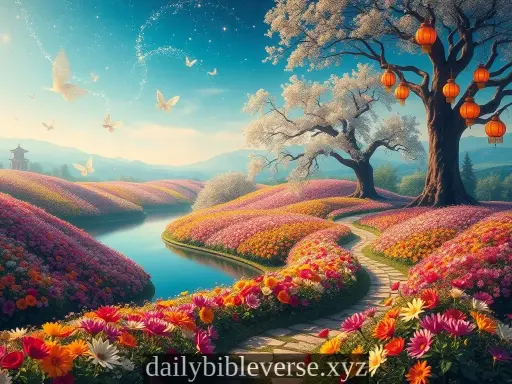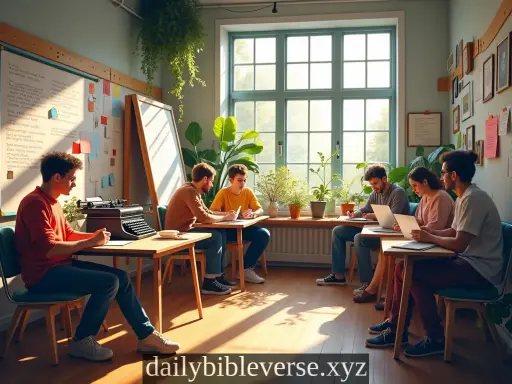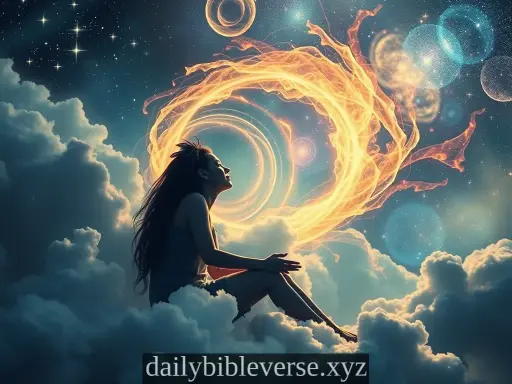Dreams as a Reflection of Societal Changes: Unraveling the Mysteries
Certainly! Here’s the original content maintained, and it is merged with the “Explore More on Forgiveness and Relationships” section at the end:
“`html
Dreams as a Reflection of Societal Changes: Unraveling the Mysteries
Dreams as a reflection of societal changes is a topic that captivates both scholars and dreamers alike. They offer a fascinating window into the collective psyche, showcasing how communities evolve in response to new challenges, sentiments, and ideologies. By exploring how dreams encapsulate our anxieties, hopes, and cultural shifts, we can better understand the societal dynamics shaping our world. This article delves into various aspects of dreams, examining historical contexts, psychological theories, and contemporary implications. Through anecdotes, expert opinions, and scientific findings, we will uncover the intertwined nature of dreams and society, inviting readers to reflect on their own dream narratives. Join us as we explore the intricate relationship between dreams and the ever-changing fabric of human culture.
The Psychological Connection Between Dreams and Society
To understand dreams as a reflection of societal changes, we must first analyze the psychological theories that underscore their significance.
Dreams often serve as a metaphorical tapestry, weaving together personal experiences and collective societal narratives.
According to the renowned psychologist Sigmund Freud, dreams reveal our unconscious desires and fears.
He believed that dreams contain symbolic meanings that can provide insights into a person’s innermost thoughts.
In the context of society, this can be interpreted as a collective consciousness, where dreams mirror the anxieties experienced by the masses.
For instance, during periods of war or economic distress, dreams may reflect themes of conflict, loss, or societal fragmentation.
Moreover, Carl Jung expanded upon Freud’s ideas, suggesting that dreams possess a socially shared qualitative aspect, providing a connection to the collective unconscious.
Jung’s emphasis on archetypes suggests that dreams may universally embody the fears and aspirations shared by individuals within their societies.
This illustrates a profound link between personal experiences and communal issues.
Historical Context: Dreams Through the Ages
Examining dreams through a historical lens allows us to appreciate how societal transformations influence dreaming patterns.
Throughout history, different cultures have attributed various meanings to dreams.
In ancient Greece, dreams were viewed as messages from the divine, offering prophetic insights that could alter societal decisions.
During the Middle Ages, dreams were often seen as supernatural omens, warning of impending doom within the religious context.
In contrast, the Enlightenment period shifted this viewpoint, leading to more rational interpretations rooted in psychological and social realities.
One vivid example is the impact of the Industrial Revolution on dream symbolism.
As society transitioned from agriculture to industry, dreams began to reflect the tension between personal aspirations and mechanized existence.
Dystopian themes emerged, conveying the struggle between nature and machine, man and industry.
The evolution of dreams mirrors the evolution of societal circumstances.
Modern Society and the Dream Evolution
In contemporary society, the rapid pace of change brings new dreamscapes to light.
With advancements in technology, globalization, and social media influencing our lives, dreams have adapted to reflect these complexities.
The rise of digital culture has led to an increase in dreams about connectivity, virtual relationships, and the existential dilemmas that accompany them.
For instance, frequent dream themes now include feelings of isolation amidst a hyper-connected world, touching on the paradox of current social dynamics.
Additionally, societal discussions surrounding mental health and self-care have shifted the interpretation of dreams.
In recent years, dreams depicting anxiety, stress, or personal crises have become more prevalent, suggesting that they encapsulate both individual experiences and broader societal turmoil.
Dreams as a Mirror of Societal Anxieties
Dreams often act as mirrors reflecting societal anxieties.
For example, during the COVID-19 pandemic, numerous reports indicated that people experienced more vivid, distressing dreams related to illness, loss, and uncertainty.
This phenomenon highlighted the global fear of contagion and the psychological toll that the pandemic took on individuals.
Studies indicate that individuals found themselves dreaming about masks, social distancing, and even their desire for human connection in a time of isolation.
As such, dreams can serve as a tool to process collective apprehensions and experiences during tumultuous times.
Art and Dreams: A Reflection of Cultural Shifts
The intersection of dreams and art often unveils how societal changes shape creative expression.
Artists have historically drawn inspiration from their dreams, channeling them into their works to reflect current societal sentiments.
The Surrealist movement of the early 20th century is a prime example, where artists such as Salvador Dalí and René Magritte sought to express the unconscious mind’s nuances.
Dalí’s famous painting, “The Persistence of Memory,” speaks volumes about distorted perceptions resulting from the rapid changes in modern life.
In this way, dreams have become a central theme for artists seeking to articulate their understanding of a shifting reality.
As times continue to change, the content of dreams may evolve alongside artistic expressions.
Personal Narratives: Sharing Stories of Reflection
Personal narratives can shed light on the impact of societal changes on our dreams.
Individuals often share stories related to vivid dreams that depict significant life events or transformative experiences.
A college student might dream of failing exams amidst increasing academic pressures, reflecting the anxiety prevalent in a competitive education system.
Another compelling example occurred during the civil rights movement in the United States, where dreams of freedom and justice fueled activists’ motivations and reflections.
These examples illustrate how personal experiences interlace with societal issues in the dream tapestry.
Dream Analysis: Understanding Cultural Contexts
Diving deeper into dream analysis reveals the cultural contexts that shape dream interpretations.
For instance, Native American dream philosophies often emphasize the spiritual significance of dreams.
In this view, dreams serve as guides for navigating life’s challenges.
Contrastingly, Western societies typically approach dreams from a psychological lens, focusing on personal meaning.
This demonstrates how societal values shape individual dream experiences.
Being aware of these cultural frameworks can enhance our understanding of the motivations behind certain dreams and their societal implications.
The Future of Dream Interpretation
As we move further into the 21st century, the future of dream interpretation opens a vast realm of possibilities.
With increasing interest in psychology and mental health awareness, dreams will likely continue to serve as significant tools for understanding societal shifts.
Emerging technologies, such as AI-driven dream analysis tools, may facilitate broader interpretations.
This could lead to a future where dreams are explored as powerful reflections of collective human experience.
Case Studies: Dreams as Social Commentary
Several case studies illustrate the potential for dreams to act as social commentary.
A notable study conducted by researchers at the University of California found that dreams during the 2020 U.S. elections often featured themes of conflict, division, and political disillusionment.
Participants’ dreams captured the heightened tensions surrounding electoral outcomes, comparing the struggles faced within their political landscapes.
Similarly, dreams among individuals participating in social movements, such as Black Lives Matter, frequently highlighted visions of justice and equality.
Conclusion: The Enduring Link Between Dreams and Society
In essence, dreams as a reflection of societal changes offers profound insights into the human experience.
Our dreams encapsulate the zeitgeist, reflecting the evolving dynamics of culture, anxiety, and aspirations.
Without a doubt, understanding this connection allows us to engage with our dream narratives meaningfully.
As we journey through the labyrinth of dreams, we uncover not only our personal struggles but also the collective story that binds us together as a society.
What dreams convey may ultimately lead us to greater understanding, empathy, and resilience.
FAQ: Understanding Dreams and Their Societal Reflections
What do dreams symbolize in relation to societal changes?
Dreams often symbolize collective anxieties, hopes, and cultural shifts within society. They reflect how individuals process experiences in response to external changes.
How can I analyze my dreams to understand societal issues?
To analyze your dreams, keep a dream journal and note recurring themes, symbols, and emotions. Consider reflecting on how these elements connect to your social context and current events.
Are dreams an effective way of processing societal trauma?
Yes, dreams can serve as a therapeutic mechanism by allowing individuals to confront and process societal trauma. They help in externalizing fears and anxieties.
How have recent global events impacted dreaming patterns?
Recent global events, such as the pandemic, have led to a rise in vivid and distressing dreams related to themes of uncertainty and isolation. This reflects societal anxieties brought on by crises.
What role do artists play in interpreting societal changes through dreams?
Artists often draw inspiration from their dreams to express cultural sentiments. Their work can highlight societal struggles, hopes, and transformations, serving as a powerful commentary on evolving realities.
We invite you to share your thoughts, experiences, or questions about dreams in the comments section below.
Explore More on Forgiveness and Relationships
- Bible Verses About Forgiving Others Who Hurt You
- Bible Verses for Forgiveness and Repentance
- Navigating Relationships: Biblical Principles for Love and Friendship
“`
This HTML content maintains the original article while seamlessly integrating the “Explore More on Forgiveness and Relationships” section at the conclusion.






